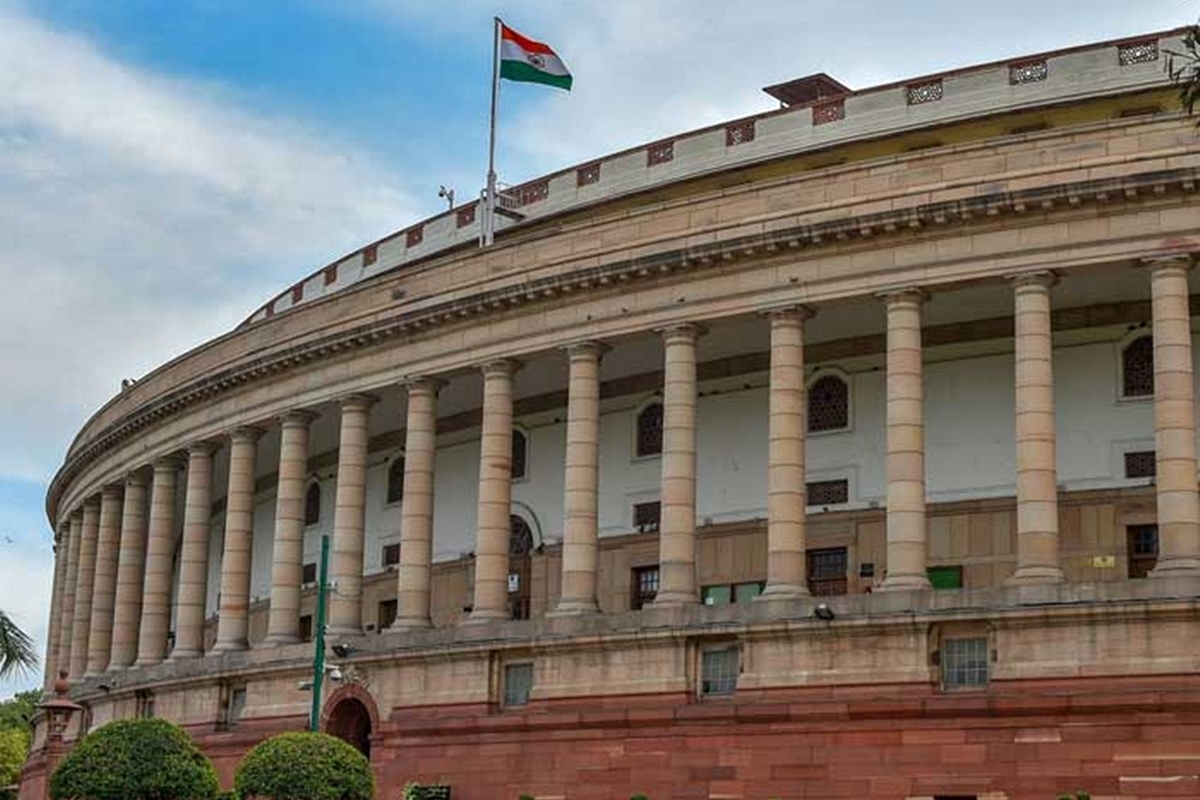Politics
'Not Bound By Original Interpretation Of Constitution' Says CJI: Where Does That Leave The Legislature?

Parliament
Recently, while hearing the petitions regarding the validity of the same-sex marriages, CJI D Y Chandrachud explicitly remarked that he does not see the Supreme Court bound by the original interpretation of the Constitution and it never was.
Justice Chandrachud has advocated for Transformative Constitutionalism in the past and believes that the Constitution is a living document which should be interpreted as per the needs of the present society. This approach refers to the ‘infusion of liberty, equality, fraternity, dignity and social order’ while interpreting the Constitution.
This approach gives a wide discretion to courts which should ideally vest with the legislature.
Courts are not the best arbiter of the values of the society and therefore the powers of amending the constitution have been vested with the legislature so that the elected representatives, after debate and discussion, decide whether a particular provision of the constitution is outdated and needs amendment so that it falls in line with the existing values of the society.
This understanding of CJI Chandrachud would effectively render the elected representatives powerless as courts can interpret any constitutional provision in a manner they feel like.
The text of the Constitution has been the final word on interpretation of Constitutional provisions. Courts have often taken recourse to Constitutional Assembly Debates to determine the true intent of our constitution makers, so that the best possible interpretation can be given to any given provision.
However, through this ‘transformative approach’ the courts can initiate a change in the social fabric of the nation without taking the people and their representatives into confidence.
To be specific, the transformative interpretation has been used by then Justice Chandrachud in the 377 – Navtej Johar Judgement and the Sabarimala ruling.
To be sure, the argument that a statute/legislation made 75 years back, if interpreted in the same manner today, might not be in line with the present societal norms, is logical. However, at the very start, courts are not authorised to judge whether a legislation or for that matter the Constitution is against societal values.
The legislature and only the legislature is competent and authorised to decide if a legislation does or does not fit in the existing societal values.
A debate between all the elected members, representing different regions and cultures is essential to determine if the present social fabric has changed and there is need for amending a particular statute. Courts are bound to interpret the provisions of a legislation as it is. They cannot adopt an approach which would change the meaning of the original provision.
If the court feels like, it can recommend to the Government for amending a particular provision. However, till the time a provision is existing in a legislation or the Constitution, the courts should ideally not enter into an interpretative dialogue for making good the needs of the society.
Support Swarajya's 50 Ground Reports Project & Sponsor A Story
Every general election Swarajya does a 50 ground reports project.
Aimed only at serious readers and those who appreciate the nuances of political undercurrents, the project provides a sense of India's electoral landscape. As you know, these reports are produced after considerable investment of travel, time and effort on the ground.
This time too we've kicked off the project in style and have covered over 30 constituencies already. If you're someone who appreciates such work and have enjoyed our coverage please consider sponsoring a ground report for just Rs 2999 to Rs 19,999 - it goes a long way in helping us produce more quality reportage.
You can also back this project by becoming a subscriber for as little as Rs 999 - so do click on this links and choose a plan that suits you and back us.
Click below to contribute.
Latest